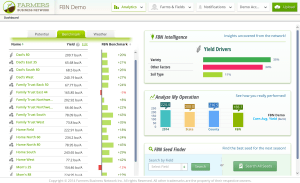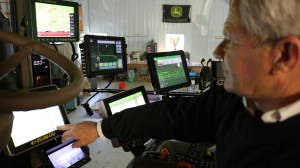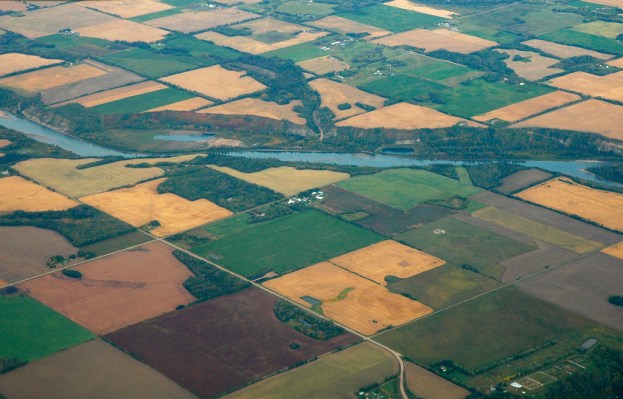In order to sustain a world population expected to reach 10 billion by 2050, we’ll need to double global crop production over the next 35 years. For Farmers Business Network (FBN), the solution is a global, big data-powered farmer-to-farmer network — and they’ve just raised $15 million in new funding to build it.
Google Ventures led the round, with help from past investors Kleiner Perkins Caufield & Byers and impact investment firm DBL. FBN has now raised nearly $28 million in venture funding.
Farmers spend billions of dollars per year on seeds and fertilizers, but currently, they’re lacking reliable information when it comes to deciding which seeds to buy, how many to plant, and which fertilizers or nutrients will produce the best outcome in different regions.
“Until now, farmers have had to rely on university trial data from highly controlled experiments, or on information from the seed companies about which seeds to use and what populations to plant,” says Charles Baron, co-founder of FBN.
Yet neither of these sources accurately represent real-world performance of crops.
“Taking advice from the seed company is a little bit like if Exxon wanted to sell you a car, Exxon would always sell you a suburban,” Baron jokes.
Since launching in November of last year, FBN has aggregated data from 7 million acres of farm land across 17 states, and they’re growing 30% month over month. The platform is currently able to assess the performance of 500 seeds and 16 different crops.
The innovation isn’t in simply capturing all of this data. Modern agricultural equipment is incredibly technologically advanced, and designed to record everything from the way the seeds are planted to changes in soil chemistry.

FBN aggregates and standardizes all of this data being collected from farms nationwide to create an analytics dashboard, which also integrates outside information like weather or regional soil conditions. By leveraging the results reported by all farms in the FBN network, farmers can make informed decisions about which agricultural products and practices will produce the highest output.
However surprising it may sound to any of us who are unfamiliar with the inner workings of a modern farm, farmers are suffering from a data overload.
“If you look inside the cab of a modern tractor, you’ll see like six different screens, and each one is producing different formats of software,” says Baron, who tells me that FBN is set up to integrate data from 35 different types of farming software.

“Huge farms that are using this precision equipment have software to analyze the data on their own farm, so they can spot an irrigation problem or a fertilizer problem from last year and correct it,” says Andy Wheeler of Google Ventures, who is joining FBN’s board.
“But the big missing piece has been analyzing this data across many farms, and that’s where you can start to get real efficiency gains — when farmers start to share the data amongst each other to get insights on which seeds did best on their soil, or which farming practices enabled them to get a higher yield,” Wheeler says.
This can save farmers some serious cash. Baron tells me that the average FBN farmer, for instance, is buying hundreds of thousands of dollars worth of seed per year. If they can determine that 5-10% of this seed is not producing, they’re able to significantly reduce costs.
“Farmers operate on razor-thin margins, and in the current environment with very low commodity prices and high input prices, farmers are barely able to make a profit,” Baron says.
Profit aside, increasing efficiency and maximizing output per acre could be our best shot at delaying a global food crisis.
